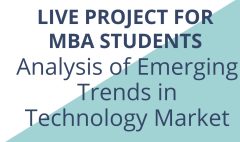Strategic Philanthropy
Strategic Philanthropy
Empower human services through strategic philanthropy by leveraging the unique skills and insights gained from an MBA. Discover how business strategies can amplify the impact of philanthropic efforts.
In the heart of every philanthropic act lies the desire to make a meaningful impact. Yet, good intentions aren’t always enough. In the complex arena of human services, the strategic mindset and analytical prowess of MBAs are transforming traditional philanthropy into a results-driven powerhouse.
The New Face of Philanthropy: Why Strategy Matters
Philanthropy, at its core, is about generosity. However, modern challenges demand more than open hearts; they require open minds capable of strategic thinking. MBAs bring a new perspective to philanthropy, treating every donation as an investment requiring careful planning, execution, and evaluation for maximum social return.
Data-Driven Decision Making: Maximizing Impact
One of the most significant shifts MBAs bring to human services philanthropy is the reliance on data. By analyzing trends, demographics, and outcomes, they ensure funds are channeled where they’re most needed and where they can make the most significant impact. This data-driven approach eliminates guesswork, focusing efforts on results and accountability.
Sustainable Solutions: Beyond One-Time Giving
Sustainability is a buzzword in business, and it’s just as crucial in philanthropy. MBAs understand that one-time donations, while helpful, don’t create lasting change. They employ strategic planning to establish sustainable solutions, such as ongoing funding models, community involvement, and development programs, ensuring the longevity of philanthropic projects.
Collaboration and Partnership: Expanding Reach
No organization is an island, and the most successful philanthropic endeavors are those done in collaboration. MBAs are adept at forging partnerships between nonprofits, government entities, and private sectors, amplifying the reach and resources available for human services projects. These collaborations can lead to innovative solutions unattainable in isolation.
Leadership and Advocacy: Driving Systemic Change
Philanthropy isn’t just about funding; it’s about advocacy. MBA graduates, with their leadership skills, are in prime positions to drive conversations, influence policy, and advocate for systemic change. They can navigate the corridors of power, speak the language of leaders, and articulate the needs of the underserved, making them invaluable assets in human services.
Resources for Aspiring Philanthropists:
- Council on Foundations – An active community of philanthropists fostering collaboration and learning.
- The Chronicle of Philanthropy – Stay updated with news, data, and trends in the philanthropic world.
- National Center for Family Philanthropy – Dedicated to families who are engaged in philanthropic efforts.
- GuideStar – An expansive database providing detailed information on non-profit organizations.
Conclusion:
The world of human services philanthropy is ripe for disruption, and MBAs are leading the charge. By integrating strategic planning, data analysis, sustainable practices, and advocacy, they’re ensuring philanthropic efforts are more impactful, efficient, and transformative. For MBAs, this is more than a career path; it’s a calling to change the world, one strategic step at a time.








